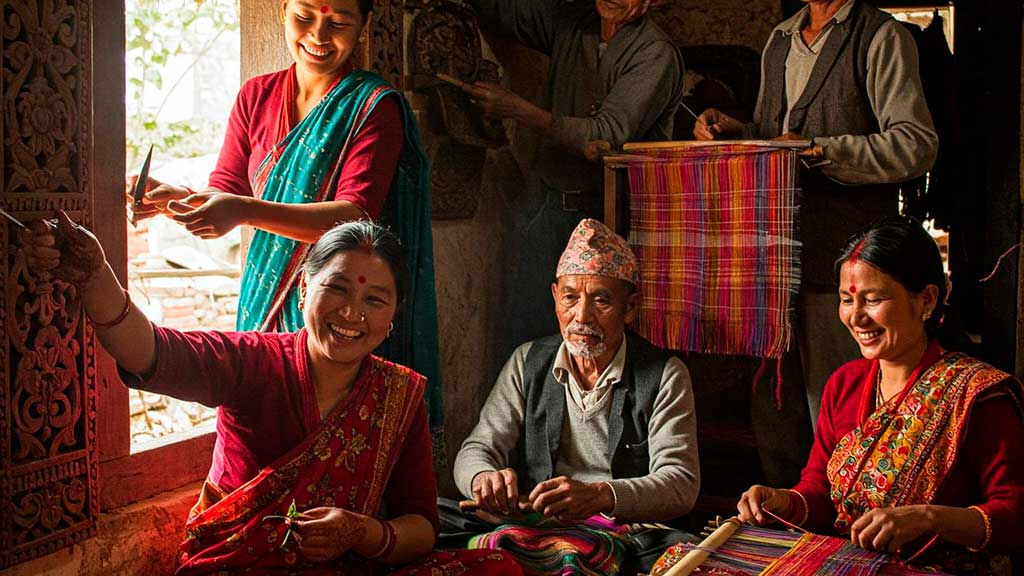Elderly care is a task that transcends mere physical assistance. It involves understanding and addressing the emotional, social, and cognitive needs of individuals in the third stage of life. A comprehensive approach seeks to promote quality of life, autonomy, and overall well-being, creating an environment of support and respect.
Fundamental Dimensions of Comprehensive Care
Comprehensive care encompasses various areas that intertwine to create an environment of support and well-being:
Personalized Assistance in Activities of Daily Living (ADL)
ADLs include tasks such as personal hygiene, eating, mobility, and medication management. Assistance should be personalized and respectful, adapting to individual needs and rhythms. The goal is to promote independence and dignity, allowing the elderly person to maintain control over their life as much as possible. Nepalese staff, with their patience and dedication, adapt to the specific routines and needs of each person, providing attentive and considerate care. For example, when assisting with personal hygiene, privacy is respected and the active participation of the elderly person is encouraged to the extent of their abilities.
Emotional Support and Companionship: Combating Loneliness and Isolation
Loneliness and isolation can have a significant impact on physical and mental health. Emotional support and companionship are essential to counteract these effects. This involves establishing a genuine human connection, actively listening, showing empathy, and providing comfort. Nepalese staff, known for their warmth and sensitivity, establish affectionate bonds with the elderly, creating an environment of trust and security. For example, sharing stories, listening to music, or simply enjoying a walk together can alleviate loneliness and strengthen the bond between the caregiver and the elderly person.
Cognitive and Social Stimulation: Keeping the Mind and Spirit Active
Cognitive and social stimulation is essential to preserve brain function and prevent cognitive decline. Activities such as reading, board games, meaningful conversations, and social outings can help keep the mind active and engaged. Nepalese staff, with their willingness to interact and participate in recreational activities, enrich the elderly person’s life and promote a sense of purpose. For example, organizing reading sessions, participating in board games, or planning outings to cultural events can stimulate the mind and encourage social interaction.
Essential Human Qualities in Care
Elderly care requires a high degree of empathy, sensitivity, and professionalism:
Patience and Compassion: Respectful and Considerate Treatment
Patience and compassion are fundamental to deal with the challenges that may arise in care, such as slowness, confusion, or frustration. Nepalese staff, with their culture rooted in respect for the elderly, provide support with kindness and understanding, creating an environment of trust and security. For example, in the face of a confusion episode, the caregiver responds with calm and patience, providing support and guidance without causing anxiety.
Effective Communication: Listening and Responding with Empathy
Effective communication is essential to establish a relationship of trust and respect. This involves actively listening, asking clear questions, using simple and understandable language, and paying attention to non-verbal cues. Nepalese staff, with their ability to communicate clearly and respectfully, facilitate understanding and mutual understanding. For example, when explaining a medical procedure, the caregiver uses simple language and ensures that the elderly person fully understands the instructions.
Adaptability and Flexibility: Responding to Changing Needs
The needs of the elderly can change over time, so it is important that the caregiver is adaptable and flexible. Nepalese staff, accustomed to different environments and situations, adapt easily to the changing dynamics of the home and the specific needs of each person. For example, if the elderly person experiences a decrease in mobility, the caregiver adapts daily activities and the environment to ensure their safety and comfort.
Considerations on Choosing Care Staff
When choosing care staff, it is essential to look for professionals who possess the qualities and skills mentioned above. Nepalese staff, with their dedication and human warmth, stand out as a valuable option to provide comprehensive and personalized care.
Conclusion
Elderly care is an act of love and respect that requires dedication, sensitivity, and professionalism. By understanding the dimensions of comprehensive care and seeking professionals who possess the right qualities, we can ensure that our loved ones receive the attention and affection they deserve in the third stage of life. At Luxury Nepalese Agency, we understand the importance of this comprehensive care and select Nepalese staff who embody the necessary qualities to provide exceptional care to your loved ones, adapting to their individual needs and creating an environment of trust and well-being.



